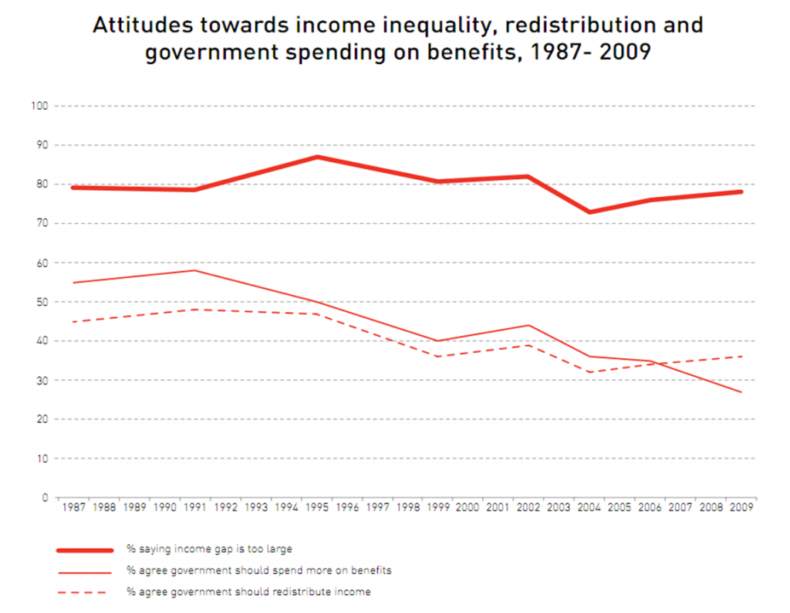What does the public think about income inequality?
Here, courtesy of the latest British Social Attitudes survey (published last year) is the answer:

What is notable is that whilst overwhelming numbers agree that “the income gap is too large”, and have consistently said so over the last 20 and more years, two of the possible routes to closing the gap have consistently fallen in popularity, namely using taxes or benefits.
Instead, it is policies such as providing better educational opportunities for the least well off (pupil premium anyone?) which best fit what the public says it wants although, as other evidence shows, the case for education needs to be made and can’t just be assumed by default.
There's another set of policies that I would have thought the public has a great deal of interest in but isn't covered by the poll – policies to make power and voice in the workplace more even and just. Tax and benefits to redistribute income and wealth after the marketplace makes them unevenly distributed is limited in its potential to make a society less unequal, whereas making the framework within which markets operate fairer and more equal is quite within the grasp and remit of government and I'd guess would be popular. working on it 🙂
One can coherently agree that inequality is too large whilst disagreeing with both the remedial options presented. Both are based on the premise that it's government that needs to do something about the inequality. I suspect that people actually yearn for a way of living that gives rise to a reduced inequality, a different stance with regard to what we owe each other as human beings. Dare I say it, caring more about each other. Perhaps if these sort of questions were asked we'd get a different answer.
I agree with the previous comments. I would also add that it is notoriously difficult to ask useful questions about things like benefits because they can be freighted with normative judgements. If there is a persistent public discourse that all those receiving benefits are scroungers, as there is, then this is likely to influence some people's views on the desirability of distribution through benefits. It doesn't mean that people do not genuinely hold the view that more benefit spending is wrong. But it does mean that we shouldn't stop at a Y/N answer but try to understand what lies behind it. Possibly even provide a counter argument to the benefit-scrounger position? An alternative way of interpreting the recent declining popularity of benefits but increasing popularity of the redistribution of income is that people have a preference for mechanisms such as tax credits because they aren't 'benefits' but go to people who are 'making a contribution'. But that would almost certainly be imputing too much into some very simple statistics!